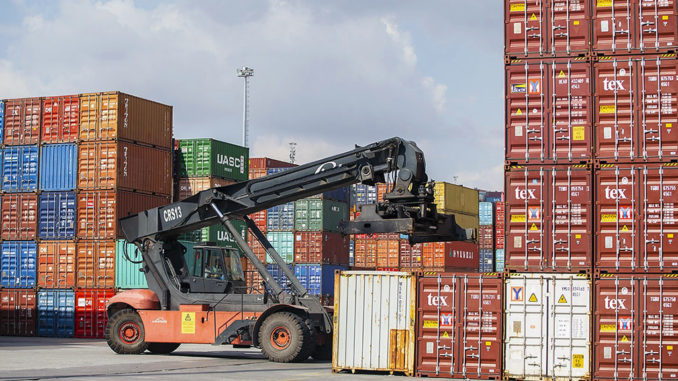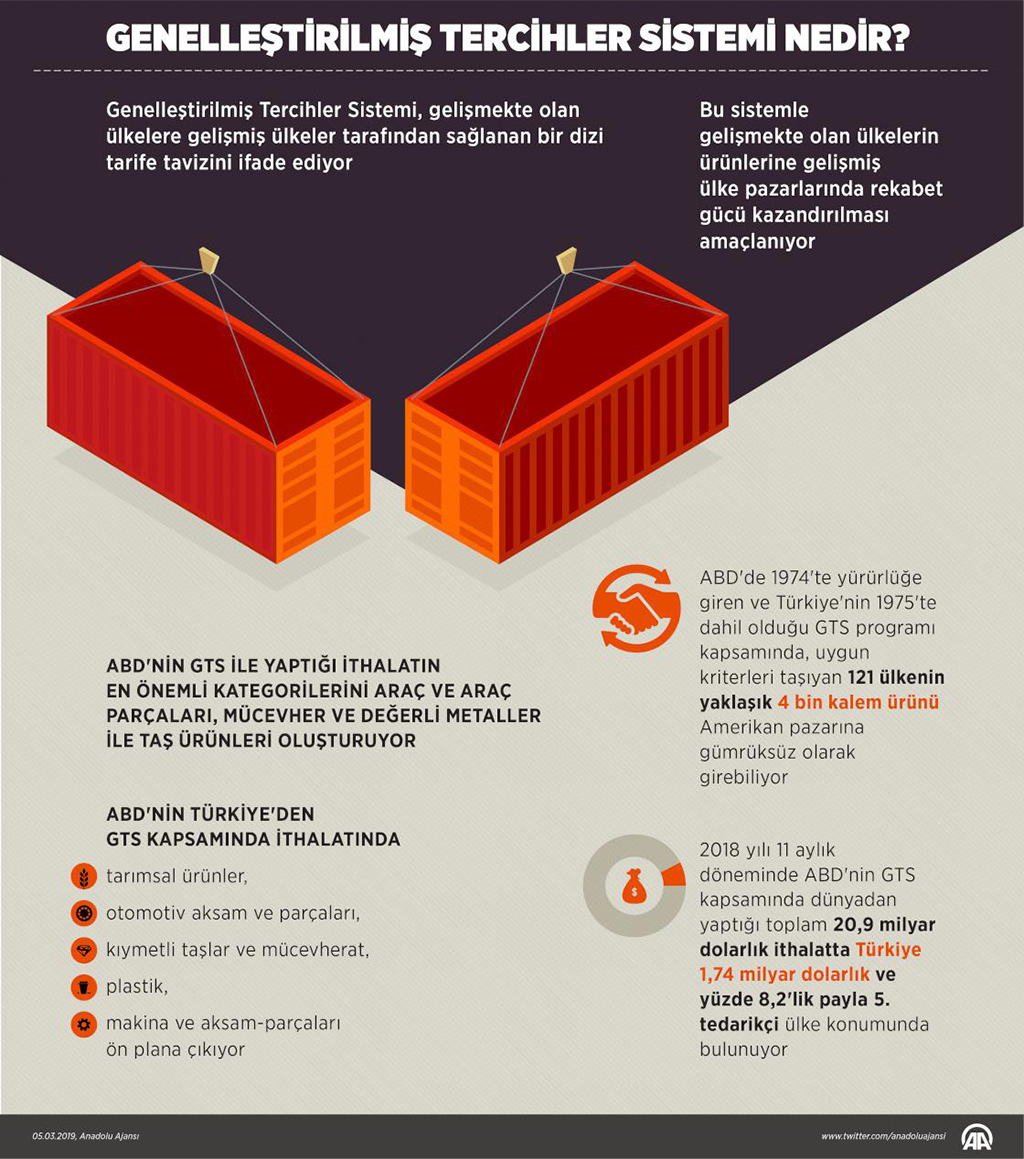
US President Donald Trump ‘s Turkey to provide tax advantages in trade with the US Generalized System of Preferences ( GSP ) within the scope of “developing countries” the decision to remove from the statute , brought the debate.
In a letter to Congress, Turkey the Generalized System of Preferences that he wants to remove the program from Trump, the Turkey based its decision no longer “be developed economically” showed n.
The United States Trade Representative (USTR) said in a statement taken into account the economic situation of the eligibility criteria to benefit from Turkey’s GSP program was expressed that no longer carry. Countries falling per capita income, poverty rate is declining, trading partner and exports within the meaning of diversity in the sector, “evidence of high levels of economic development in Turkey” was cited as
In a statement, Turkey as well as India recorded will be removed from the program. India was one of the top beneficiaries of the program in recent years.
“The US, Turkey to accept it as a developed country”
Turkish American Businessmen Association (TABA-AmCham) President Ali Osman Akat, AA correspondent, said Trump’s decision is not a surprise, the international system of the show of power, not war, said that the economic.
Akat remarkable progress in recent years in Turkey’s economy, “the United States, rather than free trade in the world in terms of the welfare of its people want to be done to increase the production and manufacturing data on its territory. US, Turkey is no longer on the path of development, are regarded as a developed country, showcases approach accordingly. “He said.
Ü The political aspect of the decision is effective “
SETA covered Wishlist Sheriff Investigator Economics Directorate is developing in the way of development of the countries presented GSP program, perform recalled that imports from Turkey of $ 1.66 billion US in 2017, said:
“Economic negatively affected, which will be removed from the program with India, Turkey is one of protectionist steps in the US last year. The United States removed India from the program in order to protect direct trade. However, it seems that the US regional and global issues, where several disputes with Turkey as the political and economic aspects of decisions taken when expressing declaration would threaten Turkey considered to be effective. “
Generalized Preferences System
The Generalized System of Preferences refers to a series of tariff concessions provided to developing countries by developed countries. the scope of the United States in 1974 and entered into force in 1975, including Turkey’s GSP program that could enter about 4 thousand items of the 121 countries which have suitable criteria as the American market duty-free. In this way, it is aimed to bring competitiveness of developing countries ‘products to developed countries’ markets.
According to Commerce Department data, in 2018 the 11-month period a total of 20.9 billion US dollars of imports from the world within the scope of Turkey’s GSP shares of 8.2 percent and 1.74 billion dollars in the country’s 5 suppliers.
The most important categories of US imports by GTS include vehicle and vehicle parts, jewelry and precious metals and stone products. while in the United States under the GSP imports from Turkey of agricultural products, automotive components and parts, precious stones and jewelery, plastics, machinery and spare-parts will come to the fore.
Andrew Brunson priest with Turkey after the crisis between the United States United States Trade Representative, granted to certain products imported from Turkey that the revision of customs facilities and in this context he explained that they began GSP eligibility verification. except Turkey, Bolivia, Kazakhstan, Uzbekistan, Ecuador, Georgia, Iraq, Thailand, India, Indonesia, and were included in the review in 2018. Ukraine.
Said application, and after 60 days without informing Congress official to Turkey could enter into force.
[AA, 5 March 2019]
BY SETA / ISTANBUL

